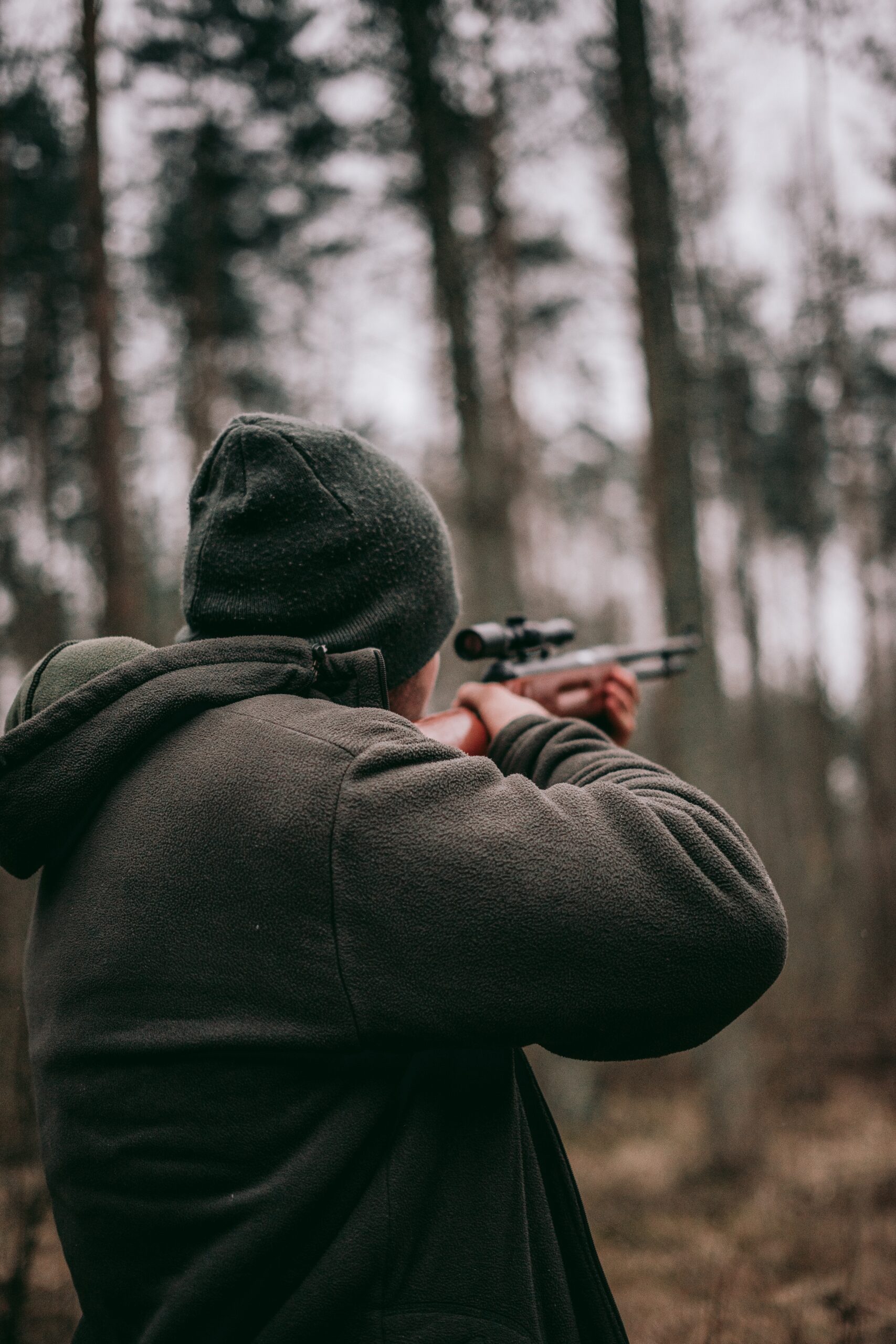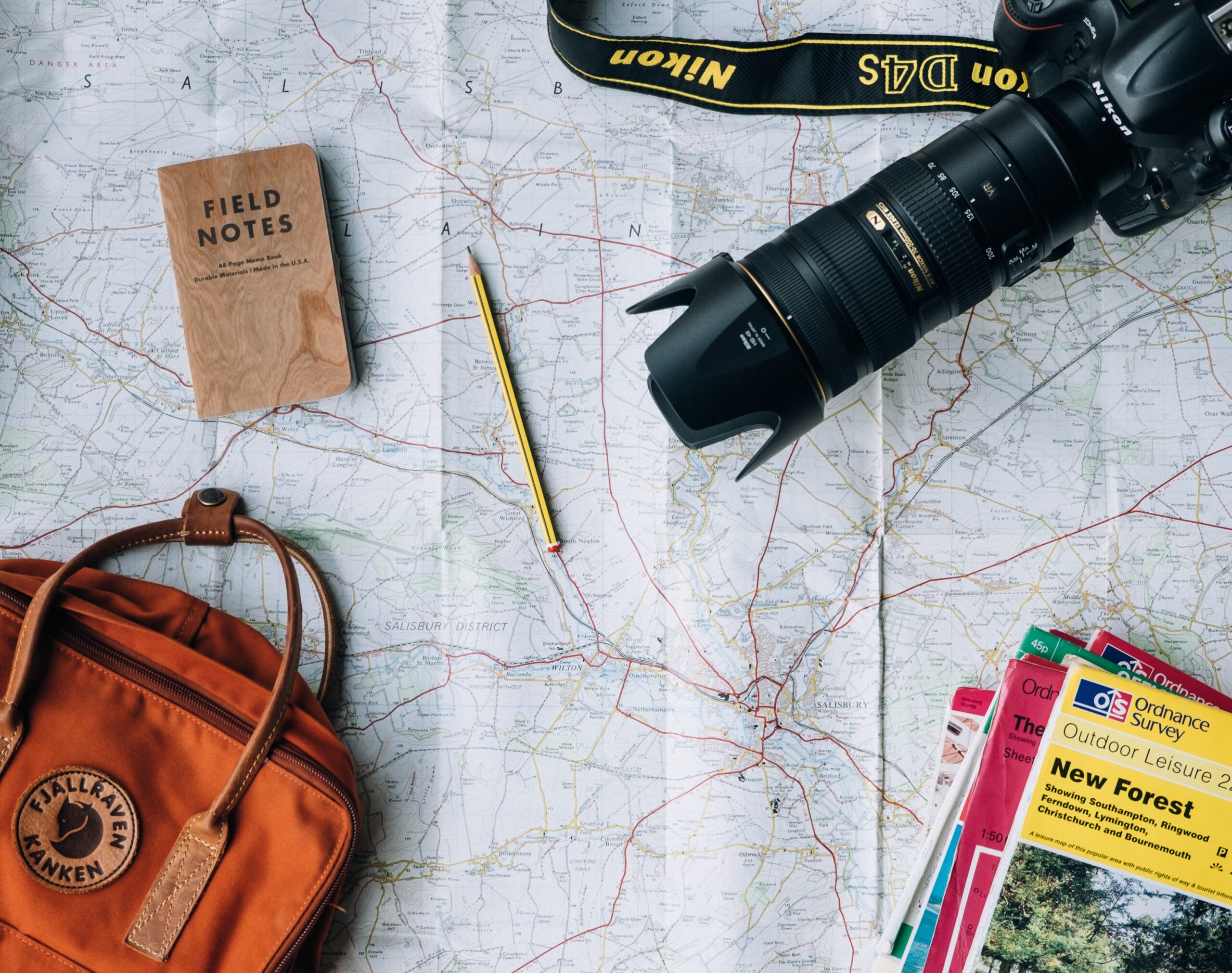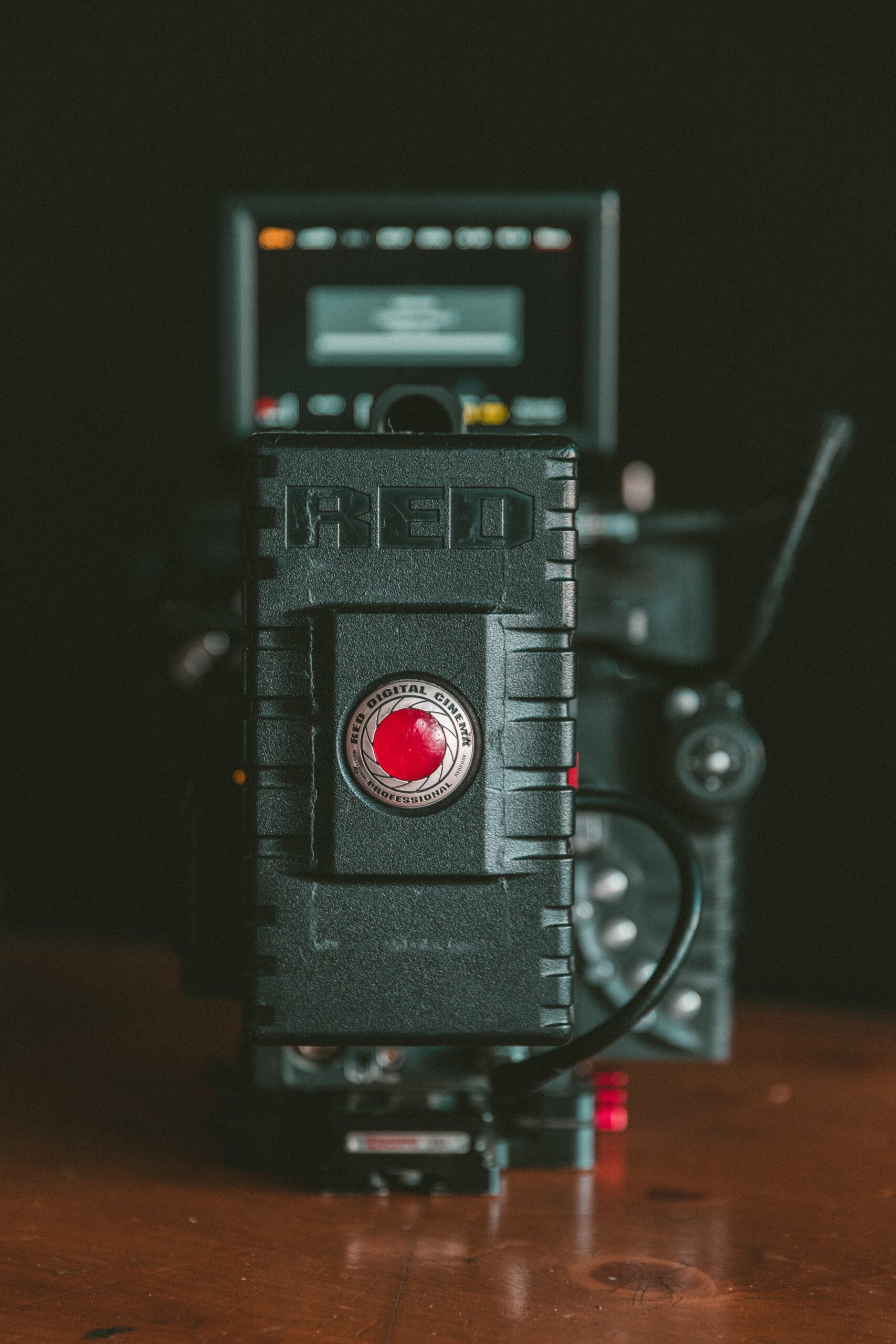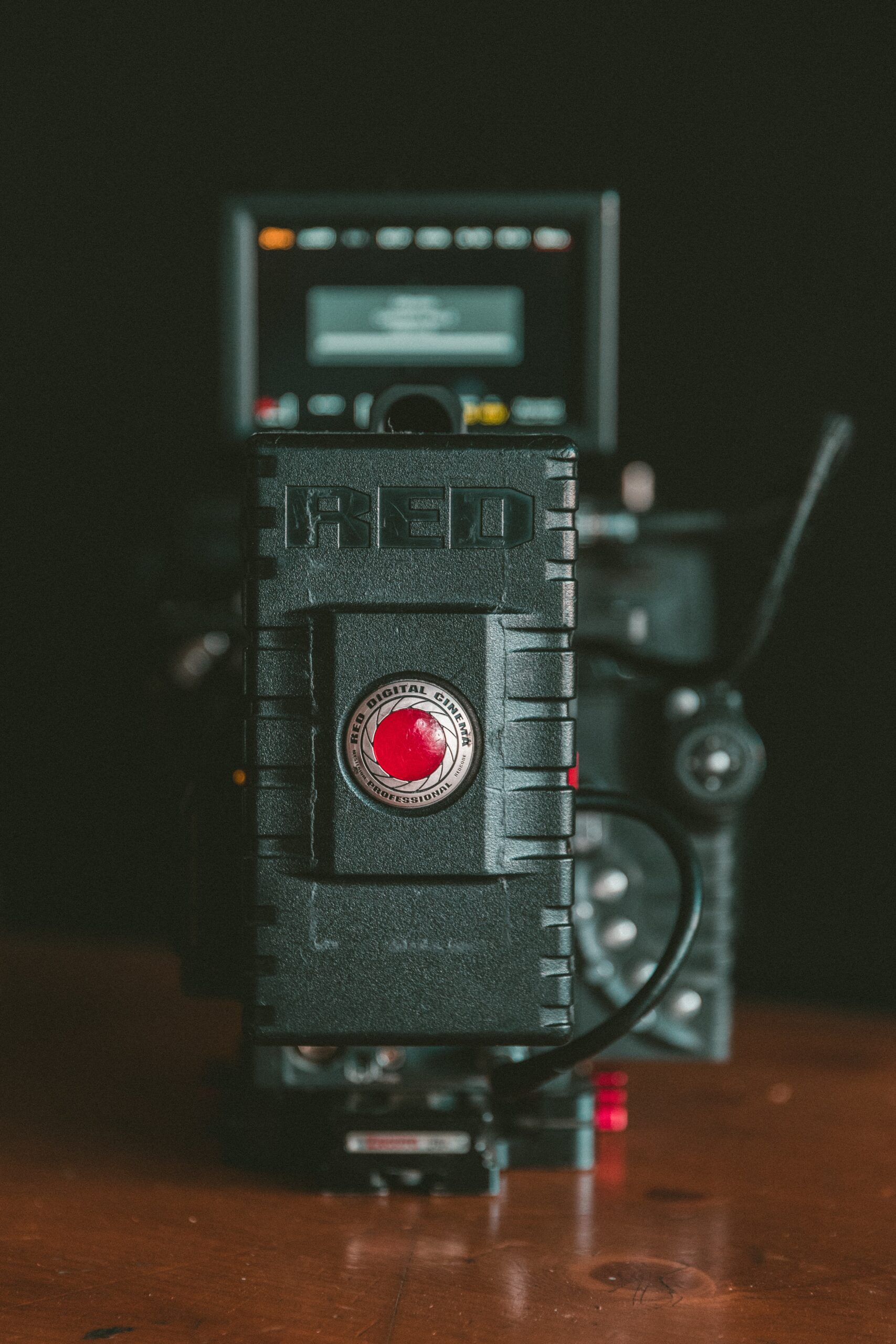Imagine you’re out in the wilderness, searching for that perfect target. As you scan the horizon, you wonder – can a spotting scope be used for hunting, just like binoculars? If you’ve ever pondered this question, you’re in for a treat. In this article, we’ll explore the potential of spotting scopes as a hunting companion, discovering their unique features, and uncovering their advantages over traditional binoculars. So grab a cup of coffee, sit back, and let’s dive into the world of hunting with spotting scopes!

Understanding Spotting Scopes and Binoculars
Definition of spotting scopes
Spotting scopes are telescopes that are designed for terrestrial observation. They are widely used in various outdoor activities, including bird watching, target shooting, and most notably, hunting. Spotting scopes are compact and portable devices that provide high magnification and excellent image quality, allowing hunters to observe their surroundings with clarity and precision.
Definition of binoculars
Binoculars, on the other hand, are optical instruments consisting of two similar telescopes mounted side by side. They are primarily used for viewing objects that are at a relatively close distance. Binoculars are compact, lightweight, and easy to handle, making them the preferred choice for many hunters.
The fundamental differences and similarities
While both spotting scopes and binoculars serve the purpose of enhancing visibility in hunting, they have some fundamental differences. Spotting scopes offer higher magnification capabilities and are mainly used for long-range observation. They are often mounted on a tripod for stability and can provide a more detailed view of distant objects. Binoculars, on the other hand, provide a wider field of view and are ideal for scanning the surrounding area. They are handheld and allow for quick spotting of game.
Despite these differences, spotting scopes and binoculars share some similarities. They both utilize similar optics technology, such as lenses and prisms, to gather and focus light onto the user’s eyes. They are also designed to be weatherproof, ensuring durability and reliability in various hunting conditions. Ultimately, the choice between a spotting scope and binoculars depends on the specific requirements and preferences of the hunter.
The Functionality of Spotting Scopes in Hunting
The use of spotting scopes in distance spotting
Spotting scopes excel in long-range distance spotting. Their high magnification capabilities allow hunters to observe targets that are far away with exceptional detail. Whether it’s identifying the species of a bird or analyzing the behavior of a game animal, spotting scopes provide the necessary clarity and precision. Hunters can use spotting scopes to scout for potential game, study their movements, and make informed decisions based on their behavior.
Spotting scopes for precision shooting
Precision shooting is another key function of spotting scopes in hunting. By providing a close-up and detailed view of the target, spotting scopes assist hunters in determining the optimal shot placement. This is particularly crucial when hunting in challenging terrains or when the target is partially hidden. Spotting scopes allow hunters to assess the distance, evaluate environmental factors, and make accurate adjustments to ensure a clean and ethical kill.
Understanding the field of view in spotting scopes
The field of view refers to the area visible through the spotting scope at a specific magnification. Spotting scopes with higher magnification usually have a narrower field of view, which can be a disadvantage when scanning large areas for potential game. However, some spotting scopes offer variable magnification, allowing hunters to adjust the field of view according to their needs. Understanding and selecting the appropriate field of view is crucial to effectively utilize spotting scopes in hunting.
The Functionality of Binoculars in Hunting
The use of binoculars in general vision enlargement
Binoculars are widely used in hunting for general vision enlargement. They provide hunters with a more comprehensive view of their surroundings, allowing them to detect game animals, spot potential hazards, and analyze the terrain. Binoculars are particularly useful in dense forests or fields where game can easily blend into the environment. By enlarging the field of view, binoculars enhance the overall situational awareness of the hunter.
Convenience factors of binoculars
One of the key advantages of binoculars in hunting is their convenience. They are compact, lightweight, and easy to carry around, making them ideal for hunters who prefer mobility and quick access. Binoculars can be effortlessly held in one hand, leaving the other hand free to handle other equipment or firearms. Their ease of use and portability make binoculars a popular choice for hunters who value convenience and agility in the field.
Understanding magnification in binoculars
Magnification is an essential factor to consider when choosing binoculars for hunting. A higher magnification allows for a closer view of distant objects but may compromise the field of view. On the other hand, lower magnifications provide a wider field of view but might lack the necessary detail for long-range spotting. It is important for hunters to strike a balance between magnification and field of view, depending on the specific hunting scenarios they encounter.
Advantages of Using Spotting Scopes in Hunting
Enhanced detail resolution
One of the primary advantages of using spotting scopes in hunting is their ability to provide enhanced detail resolution. With their higher magnification capabilities, spotting scopes allow hunters to observe game animals or specific targets with remarkable clarity. This increased level of detail can be crucial in identifying the species, gender, or age of an animal, ensuring ethical hunting practices.
Powerful magnification capabilities
Spotting scopes offer powerful magnification capabilities, allowing hunters to view targets at long distances. This is especially beneficial when hunting in open terrains, such as vast plains or mountainous regions. Spotting scopes enable hunters to spot game from a significant distance, giving them ample time to plan their approach and make strategic decisions. The ability to zoom in on distant targets can significantly improve the hunting success rate.
Suitability for long-range hunting
Spotting scopes are particularly suitable for long-range hunting due to their ability to provide detailed views at extended distances. Whether it’s observing game animals on a distant hillside or analyzing the behavior of a target from a concealed location, spotting scopes allow hunters to extend their effective range. This can be advantageous when hunting elusive or skittish animals that are often found in remote areas.

Limitations of Spotting Scopes in Hunting
Cost factor
One of the main limitations of spotting scopes in hunting is the cost factor. Spotting scopes with high-quality optics and advanced features can be quite expensive. The higher the magnification and image quality, the more the spotting scope usually costs. This can be a significant investment for hunters, especially when considering other essential hunting equipment. However, it’s important to remember that quality spotting scopes can last for many years if properly maintained.
Mobility and weight issues
Spotting scopes, especially those with larger objective lenses, can be relatively bulky and heavy. This can pose challenges to hunters who prioritize mobility and prefer to travel lightly. Carrying a spotting scope, along with other equipment, for long distances or in rugged terrains can be tiring and inconvenient. Additionally, setting up a tripod for stability may not always be practical or time-efficient, especially when quick maneuverability is required.
Limited field of view
While spotting scopes offer powerful magnification, they often come with a limited field of view. This means that hunters might have to scan a larger area using multiple, narrower views. Spotting scopes can be less suitable for situations where a wider field of view is essential, such as when hunting in dense forests or tracking the movement of a group of game animals. However, some spotting scopes offer wider field of view options, albeit with reduced magnification.
Advantages of Using Binoculars in Hunting
Lightweight and easy to handle
One of the significant advantages of using binoculars in hunting is their lightweight design and ease of handling. Binoculars are typically compact and ergonomically designed to be held comfortably for extended periods. This makes them ideal for hunters who prefer to travel light and move swiftly. Binoculars can easily be carried around the neck or in a small backpack, allowing for quick access whenever needed.
Wider field of view
Binoculars provide a wider field of view, which can be advantageous in various hunting scenarios. This wider perspective allows hunters to scan larger areas and identify potential game animals or other points of interest more efficiently. Binoculars are especially useful for hunting in dense vegetation or when tracking a moving target. The broader field of view enhances situational awareness and helps hunters make informed decisions in a shorter amount of time.
Quick spotting of game
The combination of a wider field of view and the ability to quickly bring binoculars to the eyes allows hunters to spot game animals promptly. Binoculars offer a quick response time, reducing the chances of missing a fleeting opportunity. Whether it’s a deer bounding through a meadow or a bird taking flight, binoculars enable hunters to track the movement and accurately determine the location of the target. This can greatly enhance the success rate of the hunt.

Limitations of Binoculars in Hunting
Limited magnification
One of the main limitations of binoculars in hunting is their limited magnification. While binoculars offer a sufficient level of detail for most hunting scenarios, they may lack the necessary power to observe targets at extremely long distances. When hunting in remote areas or engaging in long-range shooting, binoculars alone may not provide the level of magnification required. In such cases, a spotting scope might be a more suitable option.
Less detailed view at long range
Due to their limited magnification, binoculars might not provide the same level of detail as spotting scopes when observing targets at long distances. While binoculars are effective for scanning and locating game animals, the level of clarity and detail may decrease as the distance between the hunter and the target increases. Hunters relying solely on binoculars might miss valuable information, such as identifying specific animal characteristics or evaluating shooting angles.
Not ideal for precision shooting
Binoculars are not typically designed for precision shooting. Although they can assist in identifying and locating targets, binoculars lack the stability and accuracy needed for precise shot placement. When engaging in precision shooting or assessing long-range possibilities, using a spotting scope is generally recommended. Spotting scopes provide a more stable image, allowing hunters to make accurate judgments and adjustments before taking a shot.
Choosing Between Spotting Scope and Binoculars in Hunting
Considering your hunting terrain
When deciding between a spotting scope and binoculars, it’s essential to consider the specific hunting terrain. If you primarily hunt in open areas with long sightlines, such as wide plains or mountainous regions, a spotting scope with its powerful magnification capabilities might be more suitable. On the other hand, if you often hunt in densely vegetated areas or heavily forested landscapes, binoculars with their wider field of view can provide a broader perspective.
Considering the range of hunting
The range at which you typically engage in hunting is another crucial factor to consider. If you commonly find yourself hunting in remote areas or engaging in long-range shooting, a spotting scope will undoubtedly be beneficial. Spotting scopes offer superior magnification, allowing you to observe targets at longer distances with more detail. For hunters who primarily engage in close to mid-range hunting, binoculars can provide sufficient visibility without the extra weight and cost of a spotting scope.
Considering the hunting style
Each hunter has their own unique hunting style and preferences. Some may prefer a more active approach, constantly on the move and scanning their surroundings. For such hunters, lightweight and easily maneuverable binoculars may be the ideal choice. On the other hand, hunters who prefer a more patient and stationary approach, such as setting up in a blind or waiting in a tree stand, might benefit more from the stability and magnification of a spotting scope.
Considering the budget
Budget is always an important consideration when purchasing hunting equipment. Spotting scopes, especially those with higher magnification and advanced features, tend to be more expensive than binoculars. It’s essential to determine your budget and evaluate which option provides the best combination of features, quality, and affordability. Remember that quality equipment can last for many years, so consider your long-term needs when making a decision.
Using Spotting Scope and Binoculars Together in Hunting
Binoculars for general scanning
Using both a spotting scope and binoculars together can provide hunters with the best of both worlds. Binoculars excel in general scanning, allowing hunters to quickly survey their surroundings and spot potential game. Their lightweight and handheld design make them ideal for quick access and constant use during a hunt. With binoculars, hunters can cover larger areas more efficiently, maximizing their chances of spotting game.
Spotting scope for detailed, long-range views
While binoculars are effective for scanning and initial spotting, a spotting scope can take hunting to the next level. Spotting scopes provide unparalleled detail and magnification, enabling hunters to observe game animals or targets at extended distances with exceptional clarity. Once a potential target has been located using binoculars, a spotting scope can be used to evaluate the animal’s characteristics, behavior, and other crucial details before making a final decision.
Balancing the benefits of both tools
Using a combination of a spotting scope and binoculars allows hunters to balance the benefits offered by each tool. Binoculars provide a wide field of view, quick spotting, and ease of handling, while spotting scopes offer powerful magnification, enhanced detail resolution, and suitability for long-range hunting. By utilizing both tools, hunters can effectively cover all hunting scenarios, from scanning large areas to observing targets in great detail, ensuring a more successful and satisfying hunting experience.
Conclusion: Can a Spotting Scope be Used for Hunting Like Binoculars?
The answer to whether a spotting scope can be used for hunting like binoculars is both yes and no. Spotting scopes and binoculars, while sharing some similarities, serve distinct purposes in hunting. Spotting scopes excel in long-range distance spotting, precision shooting, and providing enhanced detail resolution. On the other hand, binoculars are ideal for general vision enlargement, convenience, and quick spotting of game.
While spotting scopes can provide some of the functions of binoculars, such as scanning and general visibility, they cannot completely replace the specific benefits offered by binoculars. Factors such as cost, mobility, field of view, and hunting style need to be considered when choosing between the two tools. Ultimately, a combination of a spotting scope and binoculars can provide hunters with the best of both worlds, allowing for a more comprehensive and successful hunting experience. The synergetic use of spotting scopes and binoculars in hunting ensures that hunters have the necessary tools to adapt to different hunting scenarios and make informed decisions in the field.

